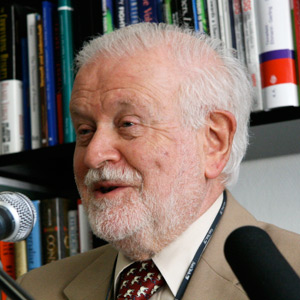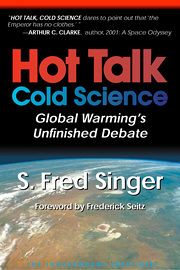Sen. John McCain’s rosy economic appraisal (“Flight Global Warming for $20 a Year,” editorial page, Oct. 30) of his Climate Stewardship Act, co-sponsored with Joseph Lieberman, is pure blarney. Perhaps this explains why it was voted down 55 to 43. Even if this energy-rationing scheme were to cost households only an improbable "$20 a year" instead of $1,000 (according to DOE’s Energy Information Administration), its benefits are essentially zilch. It would hardly influence atmospheric greenhouse gases and certainly not the climate.
Sen. McCain also claimed a scientific consensus; I will therefore expand on my testimony delivered to his Senate committee. His authority, the U.N.-IPCC science panel report, bases its conclusion about existence of human-induced global warming on three dubious claims:
- That the climate is currently warming rests solely on surface thermometer data. It is contradicted by superior observations from weather satellites and independent radiosonde data from weather balloons. Proxy (non-thermometer) data from tree rings, ice cores, etc. all confirm that there is no current warming.
- That the 20th century was the warmest in the past 1,000 years derives entirely from misuse of such proxy data. Two Canadian scientists’ detailed audit exposes a shocking set of errors; it permits anyone to independently verify their counterclaim. Note that even if these two IPCC claims were valid, they would not by themselves prove a human cause; the warming could well be a natural climate fluctuation of the kind frequently observed in the past.
- The claim that climate models (by using the observed increase in atmospheric greenhouse gases) accurately reproduce the temperature record of the past 100 years, is spurious. True, the models employ enough adjustable parameters to mimic the global average temperature. But once the record is deconstructed according to latitude and altitude, agreement disappears.
Thus, human-induced climate warming, although expected from greenhouse theory, is difficult to demonstrate and likely to remain insignificant in comparison to natural climate variations.
The Senate was on target in 1997, during the Clinton administration, when it passed the Byrd-Hagel Resolution against a similar proposal—by unanimous vote (including those of Sens. McCain and Lieberman). Last week’s vote does not represent a shift in opinion so much as a "freebie" for senators willing to cater to environmental pressure groups. It is certainly ironic that the bill would have committed the U.S. to ration its energy use unilaterally at a time when Russia has all but killed the Kyoto Protocol, the international scheme to control greenhouse-gas emissions.









